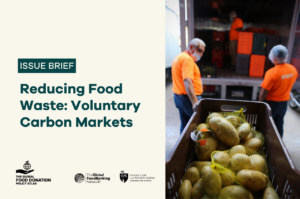The Harvard Law School Food Law and Policy Clinic (FLPC) was very excited to learn about the recent decision issued by the Lahore High Court of Pakistan in the case Muhammad Ahmad Pansota vs Federation of Pakistan. In this momentous, first-of-its-kind decision, the Court declared that wasting food violates the right to food and that the Punjab government, which governs the Pakistani province of Punjab, has a duty to take actions to ensure that excess food makes it to those in need. The Court held that the “right to life” under the Pakistani Constitution encompasses the right to food, “including protection against wastage of excess food,” thus finding that the prevention of food waste was necessary in order for the Punjab government to fulfill its obligations under the Pakistani Constitution.
The petitioners in the case relied on several reports and policy memoranda written by FLPC in submitting its initial complaint, and provided these to the court as reference materials. As the litigation proceeded and it became clear that the Punjab provincial government would need to enact laws to reduce food waste, FLPC provided support to the petitioners in the case by offering input on draft regulations, required to be submitted to the court, that encourage donation and reduce food waste in Punjab. This input, along with the previously mentioned FLPC materials, were submitted as supporting documents in the case.
The judgment directs the Punjab Food Authority to enact and enforce these food donation regulations and other laws in order to preserve, conserve, and manage excess food, in accordance with the Pakistani Constitutional right to food. The court also directed the agency to establish a management system to ensure surplus food makes it to those in need, to provide a check on the amount of food being wasted, and to revise and amend any other existing laws required to ensure implementation of this mandate. This is done through a writ of mandamus through which the Court will monitor compliance with the order and require periodic reports from the Punjab Food Authority regarding implementation.
This is the first decision of a court declaring that the right to food includes a mandate to not waste safe, wholesome, surplus food. FLPC is delighted to see the court recognizing the negative impact of food wastage on the environment, the economy, and the people, and the important role of government to ensure the policy climate incentivizes and removes barriers to the donation of safe surplus food to those in need. FLPC looks forward to continuing to provide guidance and support to the petitioners in this case and to the Punjab Food Authority in the development of its food waste regulations, and to highlighting this important decision that gives concrete meaning to the human right to food and the impact of unnecessary food waste on that right.


Health Law & Policy, Commentary
Freezing the Freeze: An Update on Litigation Challenging Trump’s Funding Freeze – HCIM
March 27, 2025